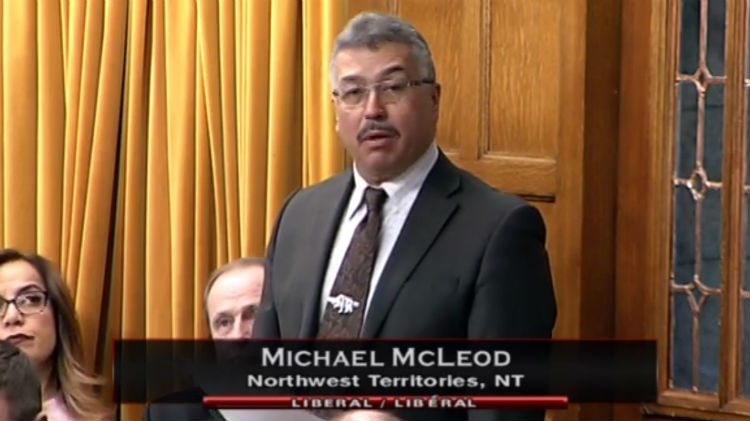$640,000 has been handed out for two projects in the NWT that will help rural and remote communities combat climate change by reducing their reliance on diesel fuel for heat and power.
NWT MP Michael McLeod says Indigenous communities and companies are showcasing their innovative solutions to combating climate change, all while creating local jobs and advancing self-determination
“We congratulate them on their leadership in their energy transformation,” he adds.
The first investment of $442,000 is for Paulatuk Community Corporation’s Beaufort Hamlet Energy Initiative.
Ray Ruben, Chair of Paulatuk Energy Working Group says this project will develop a community energy plan to support future energy efficiency initiatives and renewable energy projects.
He says this includes increasing energy literacy and skills development to reduce diesel dependency.
“Our goal is to create long-term employment, build local skills, reduce energy costs and reduce our dependence on imported fossil fuels,” he adds.
The second investment of $200,000 is for Rat River Development Corporation to build a sustainable wood chip supply chain for the Gwich’in Nation.
Rat River Development Corporation President Leslie Blake says these wood chips will be locally harvested from willow trees for use in biomass systems resulting in more Indigenous employment and participation in economic opportunities in the bioenergy and forestry sectors.
“Our former Chief, the late Johnny W. Kyikavichik, had a vision for a biomass project and brought that to light by working tirelessly on the project by obtaining funds, setting up workshops and working together with partnerships and bringing his vision into reality,” he adds.
Both projects were funded through Natural Resources Canada’s Clean Energy for Rural and Remote Communities to give those communities currently reliant on diesel the opportunity to be powered by clean, reliable energy by 2030.





